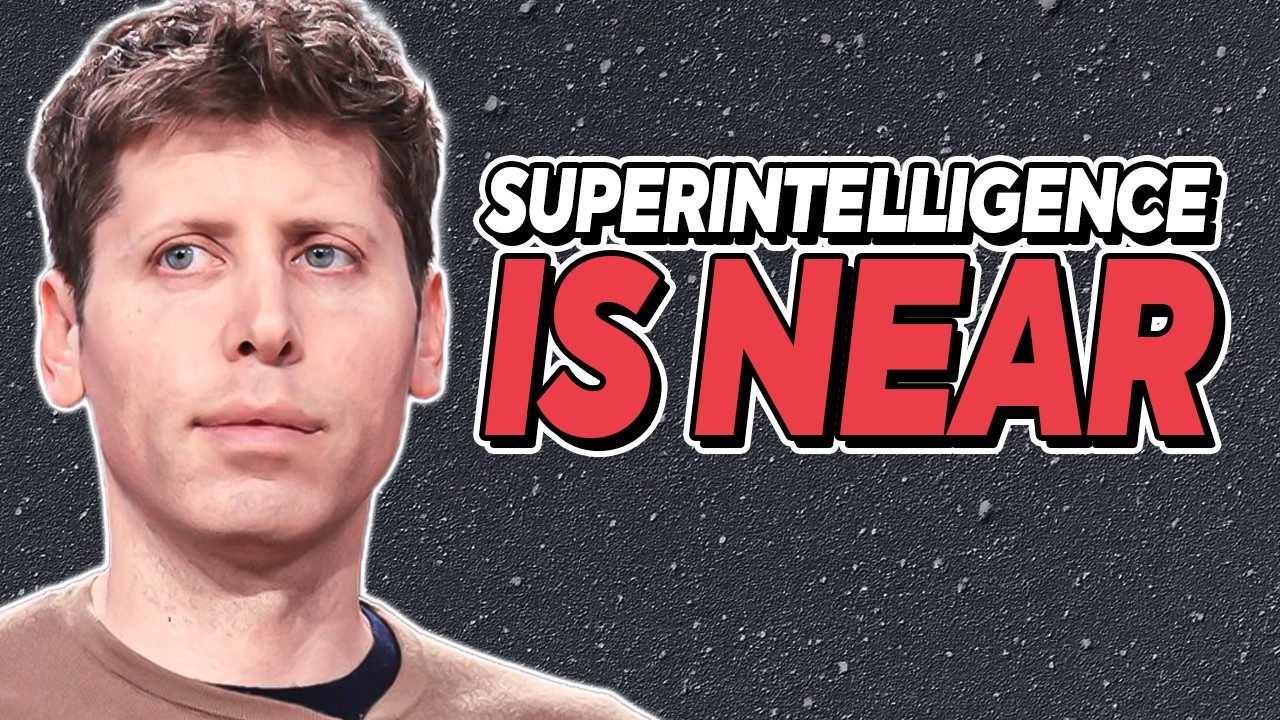OpenAI CEO Sam Altman asserts that humanity has crossed a critical threshold toward achieving artificial general intelligence, predicting rapid advancements in AI capabilities by 2025-2027 that will profoundly transform society and productivity by 2030. He emphasizes the importance of solving AI alignment, democratizing AI power, and responsibly managing its societal impacts to harness AI’s vast potential benefits while mitigating risks.
The video discusses Sam Altman’s recent blog post titled “The Gentle Singularity,” where he asserts that humanity has passed the event horizon toward building artificial general intelligence (AGI) and superintelligence. Despite this monumental progress, the world still appears largely unchanged—robots aren’t ubiquitous on the streets, and many aspects of life remain the same. Altman emphasizes that much of the hard scientific work leading to systems like GPT-4 is behind us, and the singularity—a hypothetical point where AI causes irreversible societal transformation—is near. He highlights the enormous potential benefits AI can bring, including accelerated scientific progress and vastly improved quality of life.
Altman outlines a timeline predicting rapid advancements: 2025 will see AI agents capable of real cognitive work, 2026 may bring systems that discover novel insights, and by 2027, robots might begin performing real-world tasks, though widespread robot presence is still distant. The video creator agrees with many of these predictions, especially the transformative productivity gains AI will enable by 2030, making individuals significantly more capable. Altman envisions a future where intelligence and energy become abundant resources, unlocking unprecedented possibilities if governed wisely.
The blog post also addresses the concept of recursive self-improvement, where AI systems help discover new scientific knowledge and improve themselves, potentially leading to an intelligence explosion. Economic incentives are driving massive investments in AI infrastructure, creating a positive feedback loop that accelerates progress. Altman provides context on AI’s environmental impact, noting that individual AI queries consume relatively little energy and water, though the scale of usage matters. He acknowledges challenges ahead, including job displacement, but suggests that increased wealth and productivity could enable new social policies like universal basic income.
Looking further ahead, Altman speculates on profound societal changes, such as breakthroughs in physics, space colonization, and brain-computer interfaces. He raises the possibility of people choosing to “plug in” to AI-enhanced experiences, evoking science fiction scenarios. To navigate this future safely, he stresses the importance of solving the AI alignment problem—ensuring AI systems act in humanity’s long-term interests—and preventing excessive concentration of AI power among a few entities. The democratization of AI intelligence is crucial to avoid societal imbalances.
Finally, Altman highlights how AI empowers “idea people” who may lack technical skills by enabling them to realize their visions through AI agents, shifting the startup landscape. The video creator reflects on this shift, noting that while ideas alone are insufficient, AI lowers barriers to building and testing them. Altman concludes with optimism for a smooth transition through superintelligence, hoping for exponential yet uneventful scaling of AI capabilities. The video also includes a sponsor message for Spotter Studio, an AI-powered tool for content creators.
